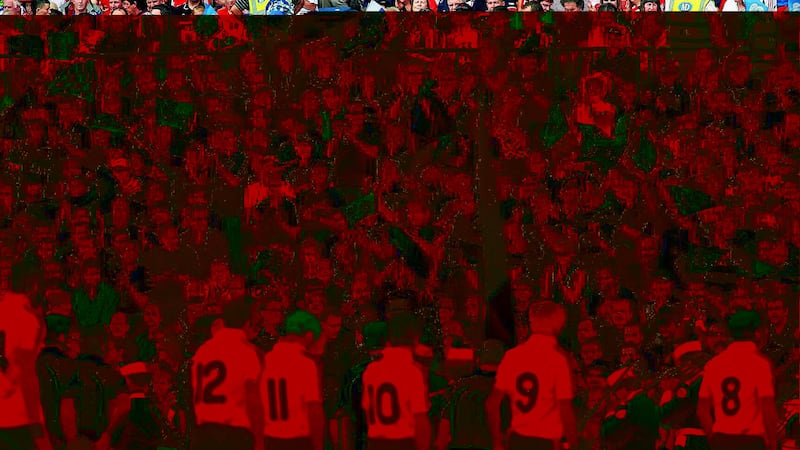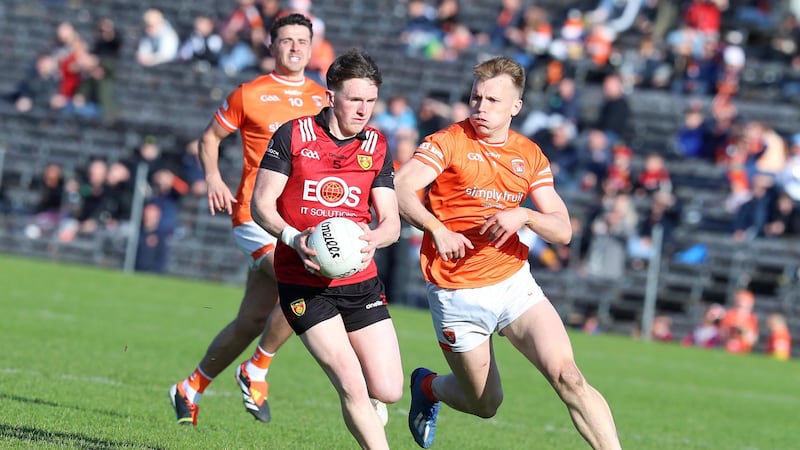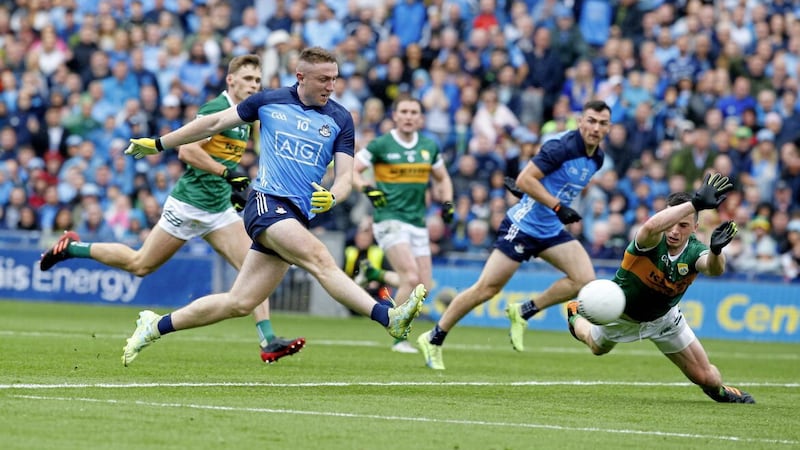THE day after Waterford defeated Cork in the 1989 Munster semi-final replay, some Waterford supporters from the south-west of the county moved the celebrations across the border and into Youghal.
It was Waterford's first championship win over Cork in 15 years but the victory also represented liberation from a decade of tyrannical oppression. In their three previous championship meetings in the 1980s, Cork had beaten Waterford by an aggregate of 72 points. Massacres.
That Waterford had taken Cork down in a shoot-out made the win even more satisfying. After Cork put 5-31 past them in the 1982 Munster final, the joke around Youghal was that Waterford had confused the scoreline with a train timetable. So hitting 5-16 in 1989, nine points more than Waterford had ever scored against Cork in the Championship, finally gave their supporters a reason to walk tall. To boot, Pat Murphy from the border town of Tallow had scored three goals.
Most of the Waterford fans gathered in Treacy's pub. There was one Cork old-timer seated at the corner of the bar. he hadn't said a word all day but all the ham-fisted bravado eventually made him crack. he launched an incendiary comment, hoping the explosion would have maximum effect. "I've been listening to your s**** there all day about how great ye are," he told them. "Who the hell do ye think ye are with your two All-Irelands and one ambush?"
As well as juxtaposing Waterford's two All-Irelands beside Cork's 27 titles (at that time) for effect, it was a crass reference to the Burgery ambush during the War of Independence, when IRA volunteers of the West Waterford flying column ambushed a British military convoy about a mile-anda-half north-east of Dungarvan. highlighting the historical past of the Rebels, both on and off the pitch, was the Cork old-timer's way of dousing the celebrations with perspective.
Normal service resumed in 1990 when Cork scolded Waterford for their insolence, hammering them by 16 points. The trend of the Waterford-Cork relationship continued in the 1990s. Cork beat them in the 1991 Championship and they beat them by seven points in the 1998 League final, Waterford's first appearance in a national final in 35 years. Waterford went into the 1999 Munster semi-final as favourites, but Cork turned them over again. By the end of the following decade, though, the texture of the Cork-Waterford relationship had been completely transformed. Over the previous three decades, nascent rivalries had revolutionised the sport and defined an era: Kilkenny-Offaly, Galway-Tipperary, Clare-Limerick, Clare-Tipperary. The first great rivalry of the 21st century, though, is Cork-Waterford.
After the Kilkenny-Offaly relationship of 1980-2000, Cork-Waterford was hurling's most satisfying rivalry during that epochal period. As with KilkennyOffaly, the relationship wasn't mean or poisonous.
Most hurling rivalries that developed in the intervening years were laced with a more physical and sulphurous undercurrent but Cork-Waterford games promoted total hurling. In their 12 Championship meetings since 2002, there have been a total of just 45 yellow cards and just two reds. Tom Kenny once said that the matches were like "two kids being given a ball and just playing".
The relationship soured briefly at the end of 2006 and early 2007, after a passage in Brian Corcoran's book, Every Single Ball. Corcoran spoke about two posters Cork had put up in their dressing room prior to their clash in 2006, one outlining Cork's world, another outlining Waterford's: "Losing; Fighting; Blaming others; Playing for oneself, not the team; Relying on luck; Bringing others down to their level." Yet the storm blew
over quickly and two of their three Championship meetings in 2007 were in the top 10 games of the last decade.
In their 12 Championship games between 2002 and 2012, Cork's five-point victory in the 2005 All-Ireland quarter-final was the biggest winning margin. That scoreline misrepresented a taut and absorbing match, in which Cork only took control in the last five minutes.
Waterford changed their style after Davy Fitzgerald took over in 2008 and there was a more measured and tactical approach to their hurling as opposed to the more liberal, swashbuckling style played under Justin McCarthy. The 2010 drawn and replayed Munster finals were huge tactical battles but they were still laced with spell-binding drama; Tony Browne scored the equalising goal in the 74th minute of the drawn game; Dan Shanahan scored the winning goal late in extra-time of the replay. In that context, those games were still faithful to the Cork-Waterford relationship of high drama and electricity.
Cork's narrow win in the 2012 All-Ireland quarter-final equalled the score, with both sides sharing five wins from those 12 games (with two draws). Those figures also show how Waterford have been more competitive against Cork than at any time in their history.
Although Cork and Waterford had a brief rivalry between 1957 and 1967 - when Waterford had their greatest team - Cork's historical domination over their neighbours stopped a fervour developing. Before they played in 2002, the counties had met 50 times in the Championship. Cork had won 39, Waterford just eight.
The last 12 seasons have shown just how much Waterford have arrested that historical trend but Cork-Waterford games have always been laced with drama. Ken McGrath's coming off the bench to hit the winning point in 2002; John Mullane's three goals in 2003; Paul Flynn's wonder goal in the 2004 Munster final, possibly the greatest hurling match ever; Brian Corcoran's drop-shot winner in the 2005 All-Ireland quarter-final; Donal Og Cusack stopping McGrath's late free going over the bar in 2006; eoin McGrath going for bust in the drawn All-Ireland quarter-final in 2007 - which Cusack saved - and the subsequent equalising free; Shanahan's winning goal in 2010.
The fact that Sunday will be only their second Championship meeting since the 2010 Munster final replay has diluted the impact of Cork-Waterford in the minds of the public but there has always been something special about modern Cork-Waterford matches. And Sunday is the latest instalment in the first great hurling rivalry of the 21st century.


